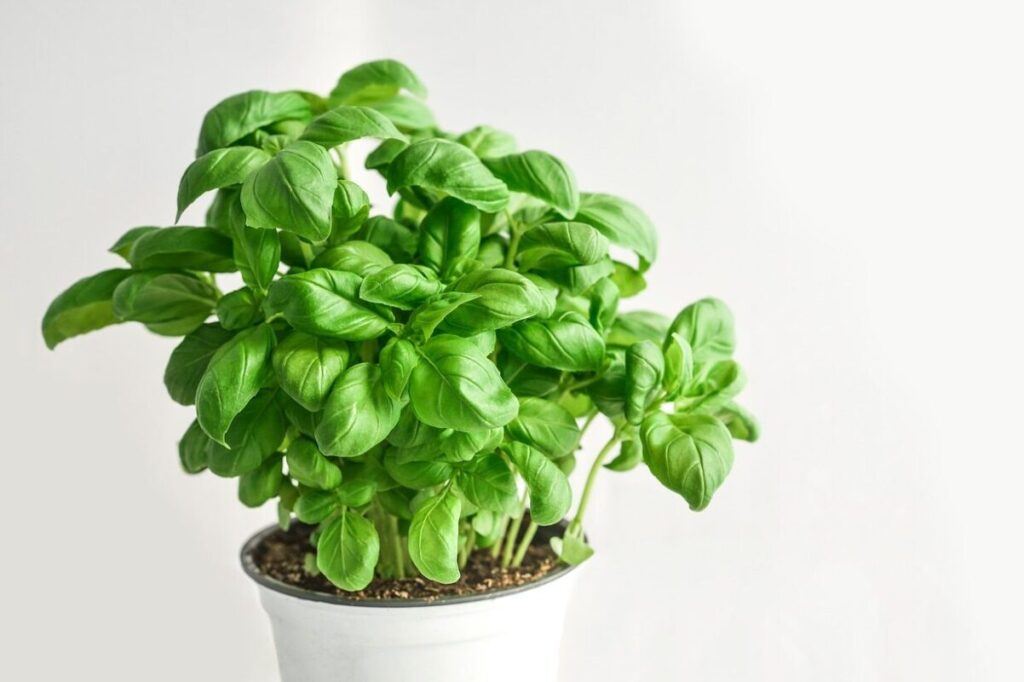Basil is used in many different, delicious recipes. Thankfully, the plant is also fairly easy to grow. Read on for some tips and tricks on growing your own basil plants!

Start Planting Your Basil
This warm-weathered herb is often transplanted; however, it can be grown from seed.
When growing basil from seeds, make sure to start the plants indoors about 6 weeks before the last spring frost. The plants will be ready for harvest about 60 to 90 days from seeding.
Growth and Care
Light and Soil
To ensure your plants thrive, make sure to plant your basil in an area that receives 6-8 hours of full sun each day. This will help prevent diseases while also allowing for sturdier plants.
Additionally, basil will thrive in soil that is well-draining, rich, and moist. Try amending the soil with compost before planting to help plants thrive.
Watering
Basil requires regular watering but will develop problems if the leaves stay wet. To avoid this, try to water at the base of the plant. Try not to allow the soil to dry completely between watering.
One additional note for gardeners: basil is a great companion plant, especially for tomatoes. However, it can also be used as a companion plant for asparagus, bean, celery, eggplants, potatoes, and peppers.
Preventing Plants From Flowering
Additionally, it is important to prevent the plants from blooming as long as possible. When the plant flowers, it’s a signal that the plant is focusing on producing seeds. This process will redirect energy from the leaves and to the flower, making the leaves smaller and more bitter.
To prevent this process, make sure to harvest or pinch off the top sets of leaves once the plant reaches about 6 inches tall.
Pests and Diseases
The largest threat to your basil plants are aphids, especially when growing basil indoors. Additionally, be sure to look out for beetles and slugs.
To get rid of these pests, try covering the entire plant with a soap solution; the solution should be 2 teaspoons of dishwashing liquid to a full gallon of water. This solution should help eradicate your pest problems.
While looking out for pests, make sure to also keep an eye out for diseases, specifically powdery mildew. To reduce the likelihood of your plants contracting powdery mildew, make sure to give them plenty of space for air circulation and avoid overhead watering.
Basil is a great plant for beginners, an amazing companion plant for tomatoes, and the perfect way for gardeners to bring their garden to their kitchen table.
For more tips and tricks on gardening, be sure to check out our other posts here!
